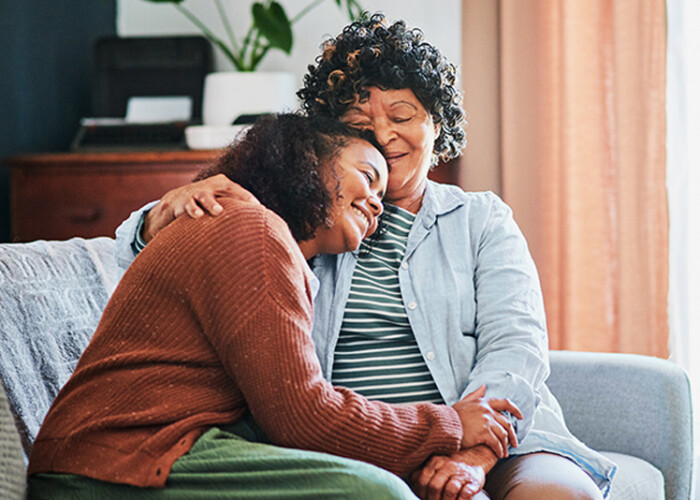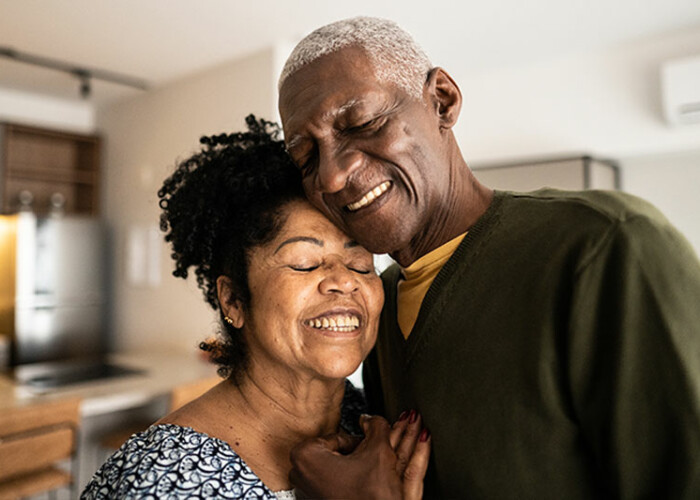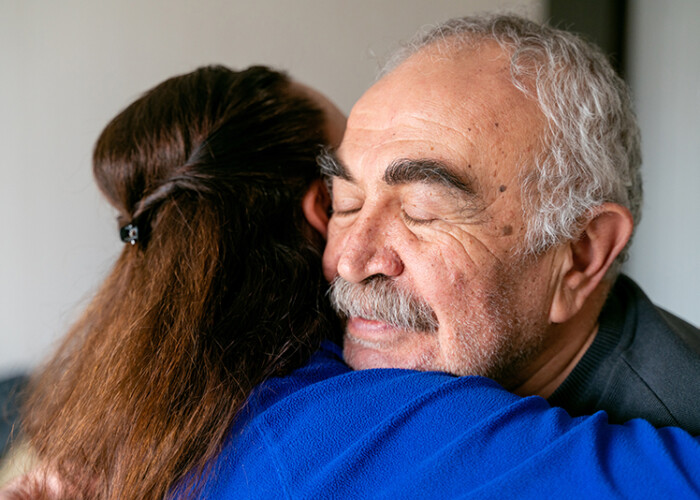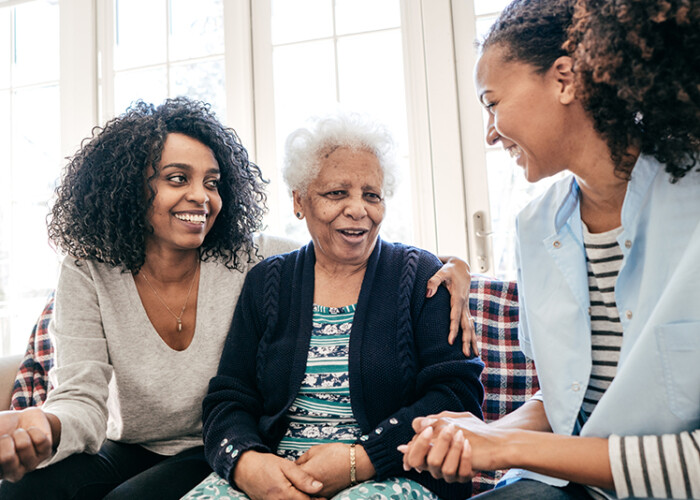Caregiver Burnout
Could You Be Experiencing Caregiver PTSD?
Caregiver PTSD is, surprisingly, the most common form of post-traumatic stress disorder.
When you think of PTSD (post-traumatic stress disorder), your mind might conjure images of soldiers returning from battle or individuals who’ve faced extreme life-threatening events. While PTSD is certainly linked to those experiences, it isn’t confined to them. In fact, PTSD can develop after any deeply distressing event—including providing care for a family member. Surprising, isn’t it? Caregiver PTSD is a significant yet often overlooked issue, as the focus is typically placed on the person receiving care rather than the caregiver’s emotional and mental health.
Healthy Ways to Manage Emotional Empathy for Caregivers
Balancing emotional empathy for caregivers can lead to healthier, more compassionate care for the person you love.
Empathy is, naturally, a crucial characteristic of effective caregiving. The ability to put yourself in another person’s shoes helps you to better meet their needs. However, there is a particular form of empathy you need to understand in order to guard your own health and wellness: emotional empathy for caregivers.
Emotional empathy takes caring to another level. Instead of simply understanding how another person is feeling, emotional empathy includes actually experiencing their feelings. For instance, if you’re someone who is highly emotionally empathetic, sitting beside a person who is crying will bring tears to your own eyes. If they’re in pain, you’ll also experience distress. You’re the type of person who will spring into action when someone has an immediate need.
Read More »
Feeling Bored as a Caregiver? Try These Ideas!
If you’re feeling bored as a caregiver, try these helpful suggestions.
It’s hard to admit but even harder to avoid. Feeling bored as a caregiver is a common response to spending so much time together, completing the same tasks, engaging in the exact same activities, and running out of intriguing conversation topics. This is not by any means associated with your feelings for the person in your care. In fact, they could be feeling just as tired of a stagnant routine.
How to Become a More Patient Caregiver
Find the tips you need here to learn how to become a more patient caregiver.
Does your blood pressure soar once you finally finish filling your cart with groceries, simply to find only one checkout lane open and a line of aggravated shoppers in front of you? Or when you arrive 5 minutes early for a doctor’s appointment, but have to wait 40 minutes to be seen? Many people just seem to exude an innate sense of patience, regardless of the circumstances. Wouldn’t you like to know their secret, particularly when it comes to knowing how to become a more patient caregiver for someone you love?
How to Be a Partner and Not a Parent as a Spousal Caregiver
We have tips to help you maintain your relationship while being a spousal caregiver.
Healthy, long-term relationships take commitment, sacrifice, and compromise. The happiest relationships are those where both parties selflessly take care of each other. This balance shifts, however, if the person you love experiences a significant health concern. And this shift can have a devastating effect on the dynamics of your relationship if you’re not vigilant, as you find yourself in the role of a spousal caregiver.
It’s natural to want to help your spouse in whatever way you can as their health needs change. However, it’s vital that you ensure you are not sacrificing your romantic connection in the process. Attempting to parent your partner can result in resentment – for both of you. To promote healthy boundaries, keep the following in mind:
• Find … Read More »
We Can Help You Avoid Caregiver Isolation
Caregiver isolation doesn’t have to be a part of your caregiver experience.
It may seem counterintuitive, but spending all your time taking care of someone else can make you feel extremely alone. The hard truth is that caregiver isolation is very common for a number of reasons:
• Feeling guilty about any time you don’t spend with the person you care for
• Being mentally or physically exhausted: you are simply too drained to want to socialize
• Resentment toward those whose lives seem so much simpler
• And much more
While experiencing the loneliness of caregiving can feel overwhelming, it’s important to take the proper steps to fight back. Social isolation can lead to serious health concerns, such as heart problems, depression, stroke, high blood pressure, and difficulties with attention and memory, just to name a few.
Read More »
Feeling Overloaded With Caring for a Loved One? These Tips Can Help!
If you’re feeling overloaded with caring for a loved one, we have three simple steps you can take to ease the strain.
If today’s to-dos seem like a lot more than you are able to possibly squeeze into 24 short hours, you are not alone! Family caregivers frequently are feeling overloaded with caring for a loved one and the daily required tasks: Personal care and hygiene. Planning and preparing meals. Medical appointments. Planning activities that are purposeful and enjoyable for the older adult. Shopping and other errands. Housework and laundry. And all of this is on top of meeting the requirements of your own spouse, children, household, and if there is any time left over, yourself!
We invite you to hit the pause button for just a minute, take a deep breath, and put into action these tried-and-true … Read More »
Why Alzheimer’s Caregivers Say They Need to Go It Alone – And Why It’s a Bad Idea
“You can make it, but it’s easier if you don’t have to do it alone.” – Betty Ford
Alzheimer’s caregivers may feel as though they are the only ones who can provide the best care for an older loved one, but finding a care partner is vitally important.
As a family member caring for a loved one with dementia, you know firsthand how challenging it can be. It’s definitely never a role that Alzheimer’s caregivers should try to fill on their own. Yet, many caregivers struggle with seeking the support they need, intensifying stress and leaving minimal room for self-care, a vital aspect for those in caregiving roles.
See if you can relate to these top reasons given by family caregivers for attempting to provide care solo, and why they need to be reconsidered:
Dad would not want another … Read More »
3 Steps to Better Advocate for an Aging Parent
Trusting someone you love to the care of someone else is never easy, particularly for a senior family member. Whether at home or in a facility, you’ll have questions you need answered. You will also want to be ready to advocate for an aging parent to proactively address any potential problems and also to quickly take care of issues that do take place.
For instance, review the following common situations and how to most effectively advocate should they arise with an older adult you love:
The person has dementia. A loved one with Alzheimer’s might not be able to effectively communicate their wishes and needs. As an example, a new caregiver may not realize that Dad wears inserts in his shoes and she may put his shoes on each day without them. Dad may not know how to communicate this … Read More »
How to Get Away From It All While Caring for an Older Loved One
Dreaming of that perfect vacation while listening to friends and family share tales of exciting getaways? The desire to travel and escape reality for a little while is universal, but when you are caring for an older loved one, it might seem like an unattainable luxury. However, taking a break is not just possible; it’s crucial for both your well-being and the well-being of your older family member.
Why Taking a Break Matters
Neglecting self-care can lead to burnout and depression, ultimately affecting the quality of care you provide. So how can you step away and know that the individual you’re caring for will remain safe and well while you’re gone?
These tips are a great place to start:
Talk About It. Initiating a conversation with the older adult about your upcoming break is a crucial step. Transparency builds trust … Read More »

















